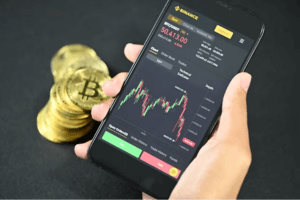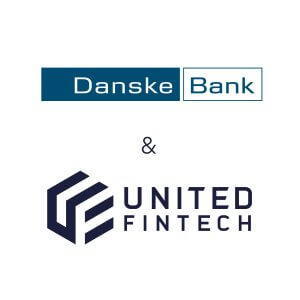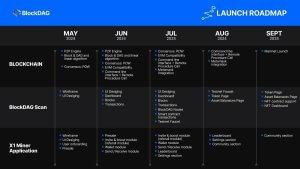In 2017, we will be able to gauge if China’s foray into the interbank FX market is valid or irrelevant
Despite ICBC in China having made an interbank trade against the CAD it is clear that the non-bank sector will flourish and serve the Chinese network of large IBs as is currently the case, relying on Western prime brokerages and western liquidity.

On November 14, China Foreign Exchange Trade System & National Interbank Funding Center (CFETS) officially released direct listed RMB trading against Canadian Dollar. As one of the first market makers for direct RMB trading against CAD, ICBC completed the first spot RMB transaction against CAD in the interbank market upon the intraday market opening.
This may well raise more than an eyebrow among those to whom global liquidity and access to international markets via relationships with Tier 1 banks, especially at a time during which the Asia Pacific region is of great interest to retail firms, and subsequently could well be to prime of primes wishing to establish interbank liquidity agreements with major institutions in the region, but things are not quite that simple.
Exactly one year ago, the International Monetary Fund (IMF) has formally accepted the Chinese yuan renminbi into the Special Drawing Rights (SDR) basket of reserve currencies.
This decision, following an alignment with the IMF’s requirements by Chinese officials, marked the opening of a potential for a monumental shift in the entire structure of the forex industry, from the interbank sector which would potentially have been able to conduct legitimate conversions between major banking institutions across the world, and on the retail side the chance to include the yuan as a major on trading platforms.
Following the inclusion of the yuan into the basket of reserve currencies, the IMF’s Managing Director Christine Lagarde stated publicly in Washington DC that this is a
“recognition of the progress that the Chinese authorities have made in the past years in reforming China’s monetary and financial systems. The continuation and deepening of these efforts will bring about a more robust international monetary and financial system, which in turn will support the growth and stability of China and the global economy.”
The currency will be included in the existing reserve basket of SDR currencies, which currently is apportioned as follows: U.S. dollar ($) 41.9%, euro (€) 37.4%, pound sterling (£) 11.3%, and Japanese yen (¥) 9.4%.
This represents pie in the sky aspirations, because those who understand the mechanism behind Chinese industry will realize that there is far more to consider than simply connecting an API to ICBC’s eFX prime brokerage matching engine and carrying on with business.
China is a closed environment, and it is not legal for Chinese firms to actively engage in any form of business with free market entities from overseas, hence a minimum of 50% state ownership is required in any entity which faces a foreign counterparty.
These days, that comes often in the form of joint ventures, in which the Chinese entity (in this case a major Chinese bank) would have to manage the entire order flow via a joint venture entity which has mandatory ownership by a Chinese company, in which the government must have 50% stake.
Then there is the firewall which monitors every activity there is, and since China has capital control rules on the RMB, government intervention on any form of retail market that is being conducted overseas and using Chinese liquidity pools would be subject to very stringent conditions indeed.
A year ago, there was a school of thought that perhaps considered that there could be possibilities for western prime brokerages to partner with local Chinese exchanges rather than banks. It is true that the existing exchange platforms may be very old and not at all appealing to the younger trader but, if the trader is sophisticated enough, then partnerships with the exchanges in order to provide trading facilities while, at the same time, utilizing technology from western firms to give the traders the type of access to overseas markets could work but that has since subsided.
Meeting with Advanced Markets’ and Fortex’s Natallia Hunik in Boston, Massachusetts earlier this month, we specifically discussed prime of prime services in China. At that time, FinanceFeeds had conducted a vast amount of research in China, and one dynamic, considered among Chinese firms, to be a potential catalyst in changing the entire framework a year ago, was that the Chinese government, rather than issuing a regulatory license to FX brokers (which will never happen), may begin ensuring that all FX is conducted via banks.
By doing this, the government could control the entire system, and have ownership for all accounts, and retail traders would be forced to trade with the bank that they have their day-to-day bank accounts with. We asked many brokers if they intended to look at hedging their bets and partnering with Chinese banks and most said no.
“We are very well positioned to go that route but, at the moment, we are discussing opportunities with local Chinese exchanges rather than banks. It’s true that the existing exchange platforms may be very old and not at all appealing to the younger trader but, if you are sophisticated enough, then you can partner with the exchanges in order to provide trading facilities while, at the same time, utilizing technology such as ours to give the traders the type of access they desire” said Ms. Hunik at the time.
As Ms. Hunik explained to FinanceFeeds at today’s meeting “Chinese exchanges, mainly precious metals ones, are still looking at updating their platforms in order to bring them up to the modern standard. Fortex is striving in this area and our proprietary Fortex 5 and Fortex 6 platforms are well-positioned to service, even, the most sophisticated users whilst also supporting algo trading, allowing traders to script their own strategies in C# and Javascript”.
“Another major trend we are observing in Chinese market is that Chinese brokerages are becoming more sophisticated in what they are demanding from prime brokerages, and are looking forward toward expanding to become B2B providers in their own right, they want to sign up their own white labels.”
FinanceFeeds concurs that indeed, partnering with government-owned institutions for liquidity is a long term exercise that has yet to prove its feasibility, something that Advanced Markets agrees with. “Since government ownership involved, very few non-Chinese entities can engage in any joint ventures or mergers with, or consider any acquisitions of, Chinese institutions” said Ms. Hunik.
“For example, Blackwell Global is a prime of prime in China, and has been expanding its services from retail FX into a firm that offers institutional services within China” she said.
“The demand these days is for more sophisticated tools. There was a time, not so long ago, where Chinese brokers would simply acquire a counterfeit MetaTrader 4 server, and platform, and run a B Book with no market connectivity at all! However, just having a MetaTrader 4 Manager and B Booking flow is no longer enough. As we watch Chinese brokers growing and learning from their own mistakes, we notice a trend developing where they are investing in server hosting within reliable datacenters, predominantly, Equinix’s HK3 datacenter in Hong Kong, for which demand has gone through the roof” she explained.
For this reason, it is clear that the non-bank sector will flourish and serve the Chinese network of large IBs as is currently the case, relying on Western prime brokerages and western liquidity.
An official with ICBC said that last month RMB against CAD central parity rate was previously based on intraday RMB central parity rate against USD and USD cross-rate against CAD. After the launch of direct RMB trading against CAD, it will be based on market maker quotation of direct trading, which means prior to interbank foreign exchange market opening, CFETS inquiries market maker quotations of direct RMB trading against CAD from the interbank foreign exchange market and averages the quotations as central parity rate of RMB against CAD on a daily basis. Meanwhile, direct trading market makers continuously provide two-way quotations of buyers and sellers of direct RMB trading against CAD during the trading period, so as to inject liquidity to the market.
ICBC is one of the first commercial banks that are qualified as market makers of direct RMB trading against CAD. ICBC now has market maker qualifications for all direct trading currencies in the interbank foreign exchange market with ability to provide quotations of 15 direct trading currencies (including USD, euro, yen, pound, AUD, NZD, SGD, SF, rouble, ringgit, ZAR, KRW, AED, SAR and CAD). ICBC has the most complete market making currencies in the interbank foreign exchange market.
On November 11, CFETS announced that to promote Sino-Canada bilateral trade and investment, facilitate the use of RMB and CAD in trade and investment settlement and meet demands of economic entities for lower foreign exchange cost, with the authorization of the People’s Bank of China, the interbank foreign exchange market will improve the methods of RMB trading against CAD and develop direct RMB trading against CAD as of November 14, 2016.









